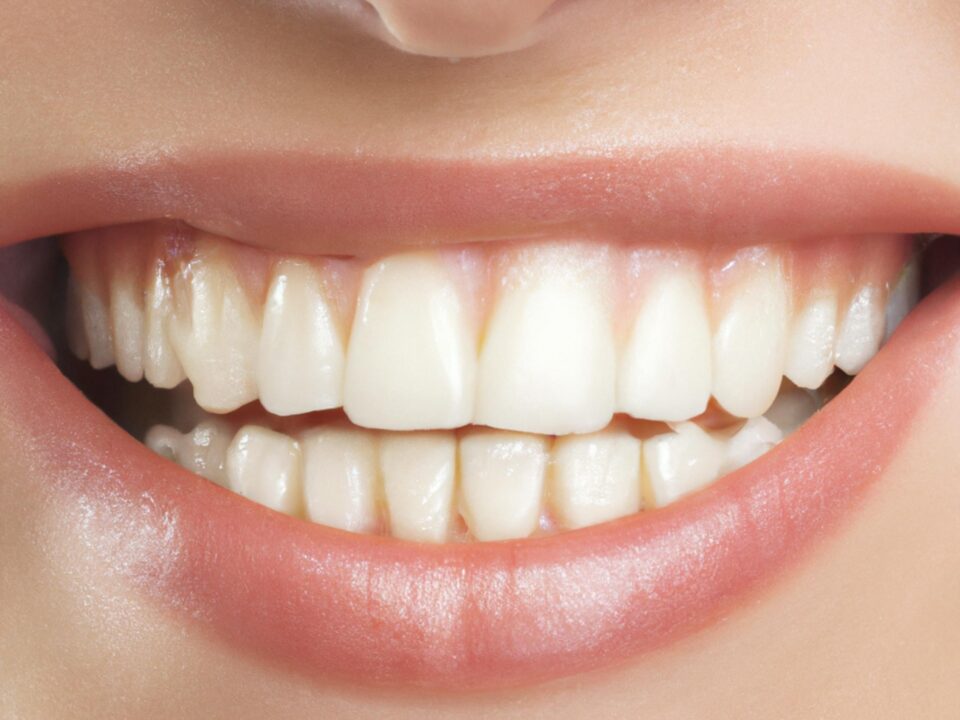Good oral hygiene is vital to your overall health Teeth care especially. Not only does teeth care keep your smile bright, but it also prevents various health issues like gum disease, bad breath, and tooth decay. Maintaining your teeth involves more than just brushing twice a day. In this guide, we’ll walk through everything you need to know about teeth care—from daily practices to choosing the right products and professional care.
Table of Contents
Understanding the Basics of Oral Hygiene
Oral hygiene refers to keeping your mouth clean and free of disease. This means caring for your teeth, gums, and tongue. Good oral hygiene involves daily habits, proper tools, and regular visits to a dentist.
The three primary goals of teeth care are:
- Preventing plaque buildup
- Avoiding gum disease
- Preventing tooth decay
These goals are achieved by following a comprehensive teeth care routine.
Why is Teeth Care Important?
Healthy teeth are not only essential for eating and speaking, but they also impact your self-confidence and overall well-being. Poor oral hygiene can lead to cavities, gum disease, and, in severe cases, tooth loss. However, by following a consistent teeth care routine, you can prevent these issues and maintain a healthy, confident smile.
Step-by-Step Daily Teeth Care Routine
To ensure optimal dental health, follow these steps every day:

Brush Your Teeth Twice a Day
Brushing your teeth twice a day is the foundation of proper teeth care. Make sure to use a toothbrush with soft bristles to prevent damage to your gums. When brushing. Rinse daily with an antiseptic (also known as antibacterial) mouthwash to help kill bacteria that cause plaque and early gum disease.
- Hold the toothbrush at a 45-degree angle to your gums.
- Move the brush in gentle circular motions.
- Brush for at least two minutes.
- Don’t forget to clean the tongue to remove bacteria and prevent bad breath.
Floss Daily
Flossing removes food particles and plaque from between your teeth, which a toothbrush can’t reach. Here’s how to floss properly:
- Use about 18 inches of dental floss.
- Gently slide the floss between your teeth, following the curve of each tooth.
- Don’t force the floss, as this can damage your gums.
Use Mouthwash
Using a mouthwash helps clean areas that brushing and flossing might miss. It also freshens breath and kills bacteria. Look for a mouthwash with fluoride to strengthen enamel and prevent tooth decay.
Rinse After Eating
After meals, rinse your mouth with water to wash away food particles and reduce acid levels. This simple habit can prevent tooth decay and gum disease.
Choosing the Right Toothbrush and Toothpaste
Your choice of toothbrush and toothpaste matters more than you might think. Here’s how to pick the best products for your teeth care:
Choosing the Right Toothbrush
Manual toothbrushes and electric toothbrushes are both effective if used correctly. Consider the following when choosing a toothbrush:
- Soft Bristles: Soft bristles are gentle on your gums and enamel.
- Size: A small to medium-sized head allows you to reach all areas of your mouth.
- Electric vs. Manual: Studies show that electric toothbrushes can remove more plaque, but manual ones are effective with proper technique.
Choosing the Right Toothpaste
Toothpaste comes in a variety of formulations, so choose one that fits your specific needs:
- Fluoride Toothpaste: Fluoride is essential for strengthening tooth enamel and preventing decay.
- Whitening Toothpaste: If you want a brighter smile, opt for a whitening toothpaste.
- Toothpaste for Sensitive Teeth: If you experience tooth sensitivity, choose a toothpaste designed for this condition.
The Importance of Flossing and Mouthwash
Flossing and using mouthwash are crucial components of teeth care that are often overlooked. Here’s why they are important:
Flossing Prevents Plaque and Gum Disease
Daily flossing helps prevent plaque buildup, which can lead to gum disease and cavities. If left untreated, plaque hardens into tartar, which can only be removed by a dentist.
Mouthwash Freshens Breath and Fights Bacteria
Mouthwash reaches areas of your mouth that your toothbrush and floss can’t. Antibacterial mouthwashes can reduce the risk of gum disease, while fluoride mouthwashes strengthen your enamel.

Advanced Teeth Care Tips
If you want to take your teeth care routine to the next level, consider the following tips:
Use Interdental Brushes
These small brushes help clean the spaces between your teeth, especially in hard-to-reach areas.
Consider Dental Sealants
Dental sealants are thin coatings applied to the chewing surfaces of your back teeth to protect them from decay.
Chew Sugar-Free Gum
Chewing sugar-free gum after meals increases saliva flow, which helps wash away food particles and neutralize acids.
Avoid Smoking
Smoking not only stains your teeth but also increases your risk of gum disease and oral cancer.
Diet and Nutrition for Healthy Teeth
Your diet plays a crucial role in maintaining healthy teeth. Certain foods can protect your teeth, while others can harm them. With proper care, your and gums can stay healthy throughout your life. The healthier your teeth and gums are, the less risk you have for tooth decay and gum disease.
Foods That Promote Dental Health
- Dairy Products: Cheese, milk, and yogurt are rich in calcium, which strengthens teeth.
- Crunchy Vegetables and Fruits: Foods like apples, carrots, and celery help clean teeth and stimulate saliva production.
- Water: Drinking water, especially fluoridated water, strengthens your teeth and rinses away food particles.
Foods to Avoid
- Sugary Foods: Candy, soda, and sugary snacks can cause cavities.
- Acidic Foods and Drinks: Citrus fruits, coffee, and wine can erode enamel if consumed in excess.
- Sticky Foods: Foods like dried fruit can cling to teeth and increase the risk of decay.
Common Dental Problems and How to Prevent Them
Here are some of the most common dental problems and how to prevent them through proper teeth care:
Tooth Decay
Tooth decay occurs when plaque, a sticky film of bacteria, builds up on teeth. Over time, plaque produces acids that erode tooth enamel. To prevent decay:
- Brush and floss daily.
- Limit sugary and acidic foods.
- Use fluoride toothpaste.
Gum Disease
Gum disease, also known as periodontal disease, is caused by plaque buildup along the gumline. In its early stages, gum disease can be reversed with proper oral hygiene.
Tooth Sensitivity
Tooth sensitivity occurs when the enamel wears down, exposing the underlying dentin. If you have sensitive teeth:
- Use toothpaste designed for sensitive teeth.
- Avoid overly hot or cold foods and drinks.
Professional Dental Care: Why You Should Visit the Dentist Regularly
While a daily teeth care routine is essential, professional dental care is equally important. Regular visits to the dentist can help prevent problems before they become severe. Here’s why professional dental care matters:
Early Detection of Problems
Dentists can identify problems like cavities, gum disease, and oral cancer in their early stages, allowing for prompt treatment.
Professional Cleanings
Dentists and dental hygienists use special tools to remove tartar and plaque buildup that cannot be removed by brushing and flossing alone.

Preventive Treatments
Your dentist may recommend fluoride treatments or dental sealants to help prevent tooth decay.
Recommended Teeth Care Products
Here are some highly recommended products to consider incorporating into your daily routine:
- Oral-B Pro 1000 Electric Toothbrush
- Colgate Total Advanced Whitening Toothpaste
- Listerine Total Care Mouthwash
- Crest Glide Dental Floss
These products are designed to help improve your teeth care routine and ensure a cleaner, healthier mouth.
It is recommended to brush your teeth twice a day, once in the morning and once before bed.Tips for Flossing Your Teeth .Floss your teeth at least once a day and ideally after each meal you consume. Flossing gets rid of food and plaque between the teeth, where your toothbrush cannot reach. If plaque stays between teeth, it can harden into tarter which must be removed by a dentist or hygienist. To floss You can floss either before or after brushing, but make sure to floss at least once a day.
How often should I visit the dentist?
You should visit your dentist at least twice a year for regular checkups and cleanings.
What’s the best toothbrush for sensitive teeth?
For sensitive teeth, choose a soft-bristled toothbrush, and consider an electric toothbrush with a sensitive setting.
In conclusion, maintaining your teeth care is crucial for overall health and well-being. By following a consistent routine, using the right products, and seeking professional care, you can ensure a healthy, confident smile for life. Start prioritizing your teeth care today to prevent problems tomorrow!

